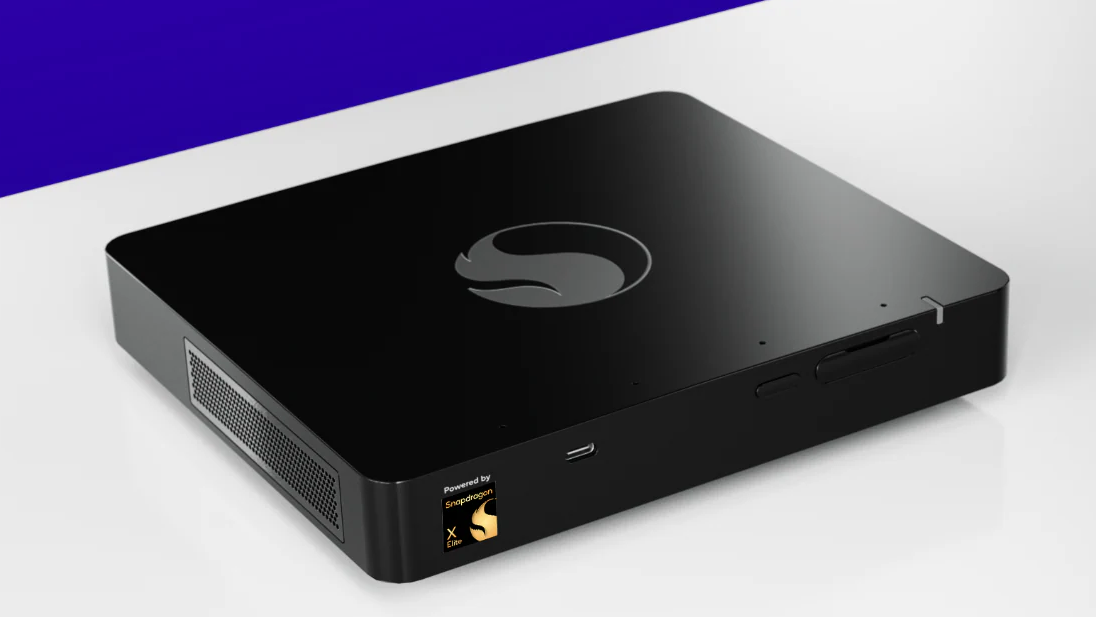According to software developer Jeff Geerling, despite having a significantly higher power limit than regular Snapdragon X Elite laptops, Qualcomm’s official dev kit for the CPU doesn’t show significant performance gains.
The Snapdragon X Elite dev kit uses a mini-PC-like form factor, like the NUC and the Mac Mini, and can run Qualcomm’s flagship laptop chip with much more power than most laptops. More power allows for higher clock speeds, which translates into higher performance.
Geerling tested the Snapdragon X Elite dev kit in Geekbench 6 and Cinebench 2024; during the benchmarks, the CPU ran at about 80 watts and 100 watts, respectively, which is far more than the nominal 23-watt TDP for the Snapdragon X Elite. But the CPU isn’t substantially faster than average in exchange for all that power. Compared to numbers from our Dell XPS 13 9345 review, the dev kit was only about 10% faster in Geekbench 6 and 28% faster in Cinebench 2024’s multi-threaded test.
| Header Cell – Column 0 | Snapdragon X Elite Dev Kit | XPS 13 9345 |
|---|---|---|
| Geekbench 6 Multi-thread | 15,969 | 14,635 |
| Geekbench 6 Single-thread | 3,020 | 2,797 |
| Cinebench 2024 Multi-thread | 1,227 | ~960 |
Nearly quadrupling the power for performance gains in the 10% to 30% region isn’t particularly efficient. However, Geerling did note that the dev kit’s Snapdragon X Elite scored about on par with Apple’s M3 Pro for only “a bit more power.”
“I’m guessing they pushed the thermals and power to get the X Elite as high as it can go (sacrificing a bit of efficiency for performance),” Geerling said.
Given that the Snapdragon X Elite is first and foremost made for laptops, it’s not too surprising that cranking up the power to lower-end desktop levels significantly reduces efficiency. Processors have a sweet spot where power and performance scale nearly linearly, and clearly, that sweet spot is around the normal 23-watt TDP.
Qualcomm previously stated that its Snapdragon PC chips would come to “all PC form factors” and wouldn’t leave desktops out of the picture. However, the Snapdragon X Elite won’t be that desktop chip, considering its relatively low performance compared to bonafide desktop CPUs from AMD and Intel. Qualcomm is, however, working on its upcoming Snapdragon CPUs for the PC, apparently called Snapdragon X2 or Project Glymur, and those chips might be desktop-grade.



